Global Sumud Flotilla departs Barcelona in largest mission to challenge Gaza blockade
An international aid flotilla carrying activists and humanitarian supplies set sail from Spain on Sunday (31 August) in an effort to breach Israel’s blockade of Gaza. Organisers call it the largest mission of its kind, with participants from more than 40 countries, including Swedish activist Greta Thunberg and Irish actor Liam Cunningham.
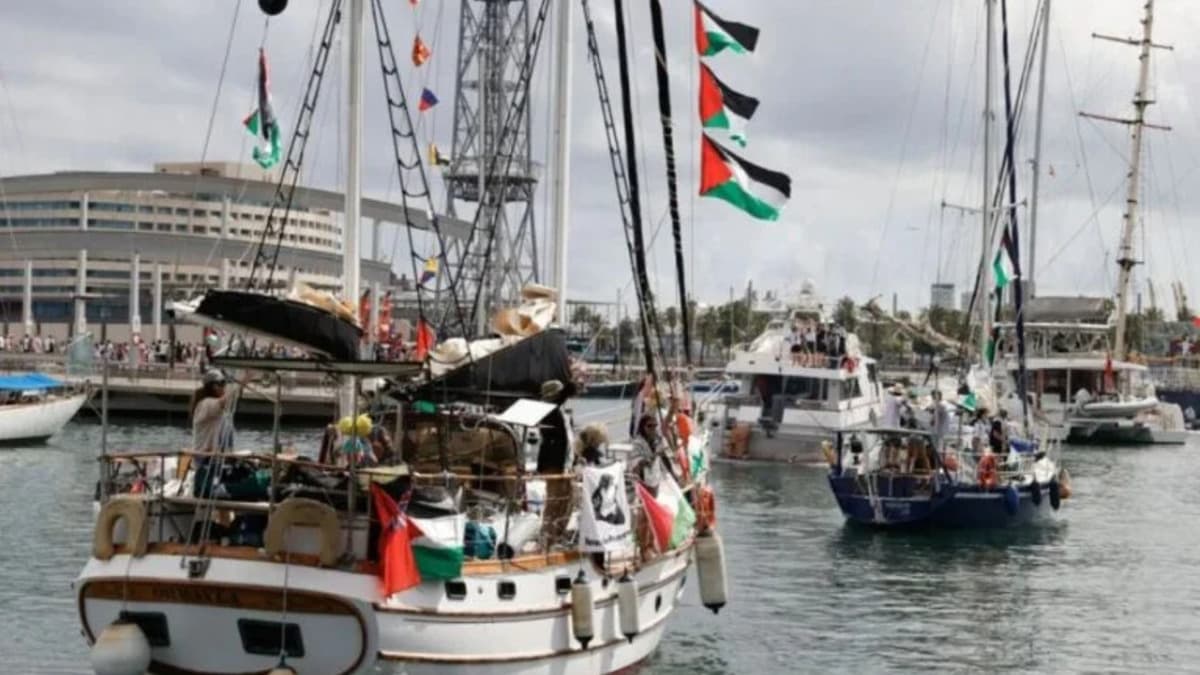
- The Global Sumud Flotilla, carrying aid and activists, departed Barcelona on 31 August to challenge Israel’s Gaza blockade.
- Organisers say it is the largest flotilla to Gaza yet, with participants from over 40 countries.
- The mission comes amid a deepening humanitarian crisis, with the UN declaring famine in Gaza.
BARCELONA — An international flotilla, the Global Sumud Flotilla, set sail from Barcelona on Sunday (31 August) in what organisers describe as the largest maritime mission yet to challenge Israel’s long-standing blockade of Gaza.
The convoy of vessels is carrying humanitarian supplies and hundreds of international activists seeking to deliver aid directly to Gaza, where famine and mass displacement have devastated the population.
Departure delayed by strong winds
The fleet faced an early setback on Monday morning (1 September) when strong winds exceeding 30 knots, or about 55.6 kilometres per hour, forced organisers to return to port for safety reasons. Hours later, conditions improved, and the flotilla departed again from Barcelona that evening.
Organised by four major coalitions — the Global Movement to Gaza, Freedom Flotilla Coalition, Maghreb Sumud Flotilla, and Sumud Nusantara — the mission brings together volunteers and human rights defenders from across the world, including Australia, Brazil, South Africa, and numerous European countries.
Organisers emphasised that the participants are unaffiliated with any political party or government.
Among the notable figures on board are Swedish climate activist Greta Thunberg, Brazilian environmentalist Thiago Ávila, former Barcelona mayor Ada Colau, Irish actor Liam Cunningham, and Spanish actor Eduard Fernández.
A multinational humanitarian mission
The Global Sumud Flotilla is said to be the largest maritime mission to Gaza, with delegations from at least 44 countries. In addition to around 20 boats that left Barcelona, more vessels are expected to join from ports in Tunisia and Sicily in the coming days.
According to flotilla spokesperson Saif Abukeshek, roughly 70 boats could join the final leg of the journey toward Gaza. He estimated that the fleet may reach the enclave around 14 or 15 September, depending on weather and maritime conditions.
Abukeshek told Spanish public television that the mission’s goal is to draw global attention to the ongoing blockade and humanitarian crisis in Gaza.
“This is not just about bringing aid — it’s about reminding the world that Gaza’s people cannot continue to live under siege,” he said.
Previous missions blocked by Israel
The voyage follows several earlier attempts to deliver aid to Gaza by sea, all of which were intercepted by Israeli forces.
In June 2025, the Freedom Flotilla Coalition launched a civilian vessel named Madleen from Catania, Sicily, carrying humanitarian aid and human rights defenders. The ship was intercepted by Israeli naval forces in international waters and towed to the port of Ashdod. All activists on board were detained and later deported.
Israeli officials dismissed the Madleen mission as a “selfie yacht,” claiming it carried “less than a single truckload of aid.”
A month later, in July, the coalition launched another ship, the Handala, from Italy. It too was intercepted in international waters, with its passengers detained and deported.
Human rights organisations have repeatedly criticised Israel’s naval blockade of Gaza, calling it a violation of international law. Israel maintains that the blockade is necessary to prevent weapons smuggling to Hamas.
Deepening humanitarian crisis
The Global Sumud Flotilla sets sail amid mounting evidence of a catastrophic humanitarian situation in Gaza.
In August, the United Nations-backed Integrated Food Security Phase Classification (IPC) formally declared a state of famine in the enclave. The IPC report found that more than 514,000 people in Gaza are already facing “catastrophic” conditions marked by starvation, destitution, and death.
The number is projected to rise to more than 640,000 by the end of September, with famine expected to spread further south into Deir al-Balah and Khan Younis.
Israeli Prime Minister Benjamin Netanyahu has rejected the IPC findings, calling them “an outright lie.” He argued that Israel continues to facilitate the delivery of humanitarian aid into Gaza and accused international agencies of politicising the crisis.
Since May, all food aid distribution has been overseen by the Israel- and US-backed Gaza Humanitarian Foundation (GHF), after Israel accused the UN of allowing Hamas to divert aid.
According to the GHF, more than 148 million meals have been distributed since its establishment. However, Gaza’s Health Ministry has reported that more than 2,000 people seeking aid were killed since the GHF’s takeover, citing Israeli strikes near distribution points.
Mounting casualties and global reaction
Since the start of Israel’s military campaign in Gaza on 7 October 2023, more than 63,400 Palestinians have been killed, including at least 18,430 children, according to Gaza’s Health Ministry.
The rising death toll, combined with widespread destruction of homes, hospitals, and infrastructure, has fuelled growing international outrage and demands for accountability.
Activists behind the Global Sumud Flotilla say their mission is both symbolic and practical — an attempt to deliver life-saving supplies while spotlighting what they describe as the world’s moral failure to protect Gaza’s civilians.
The flotilla’s progress is expected to be closely monitored by both Israeli and international authorities as it heads eastward across the Mediterranean in the coming days.

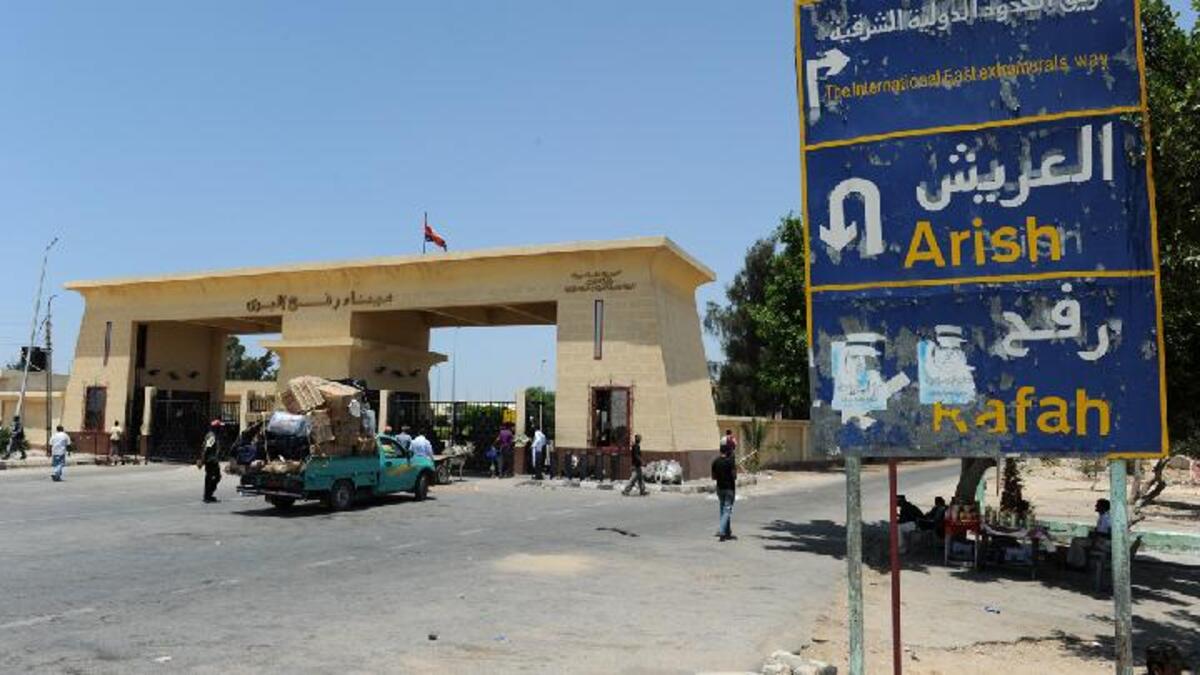
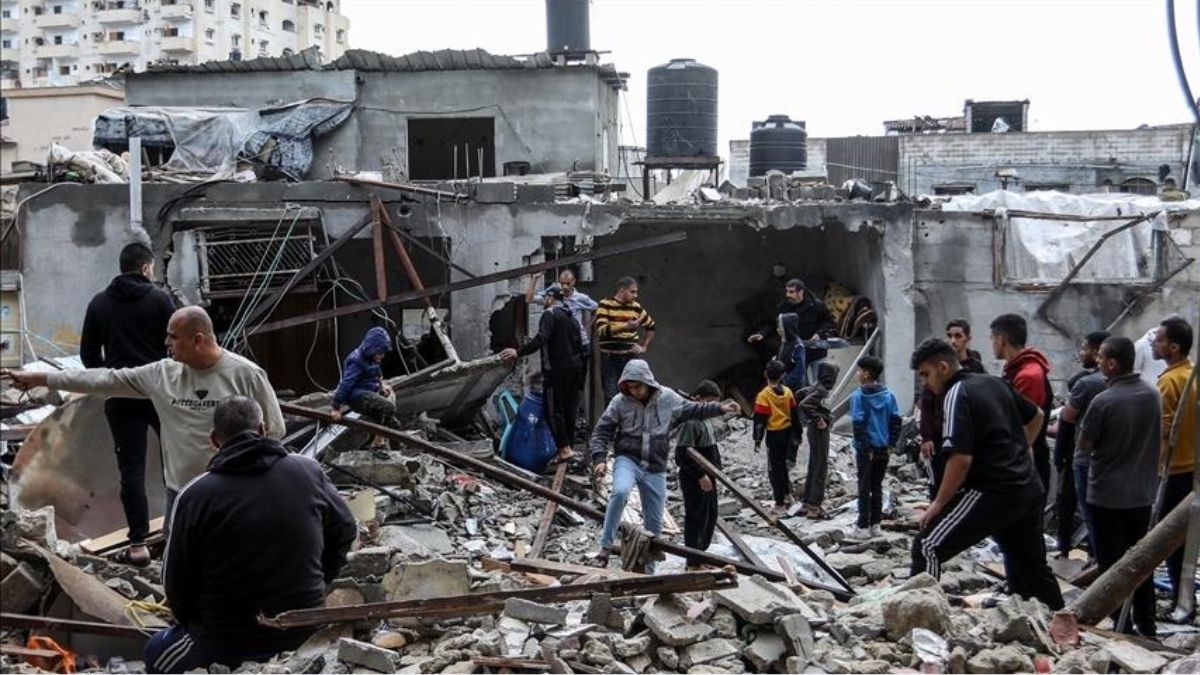
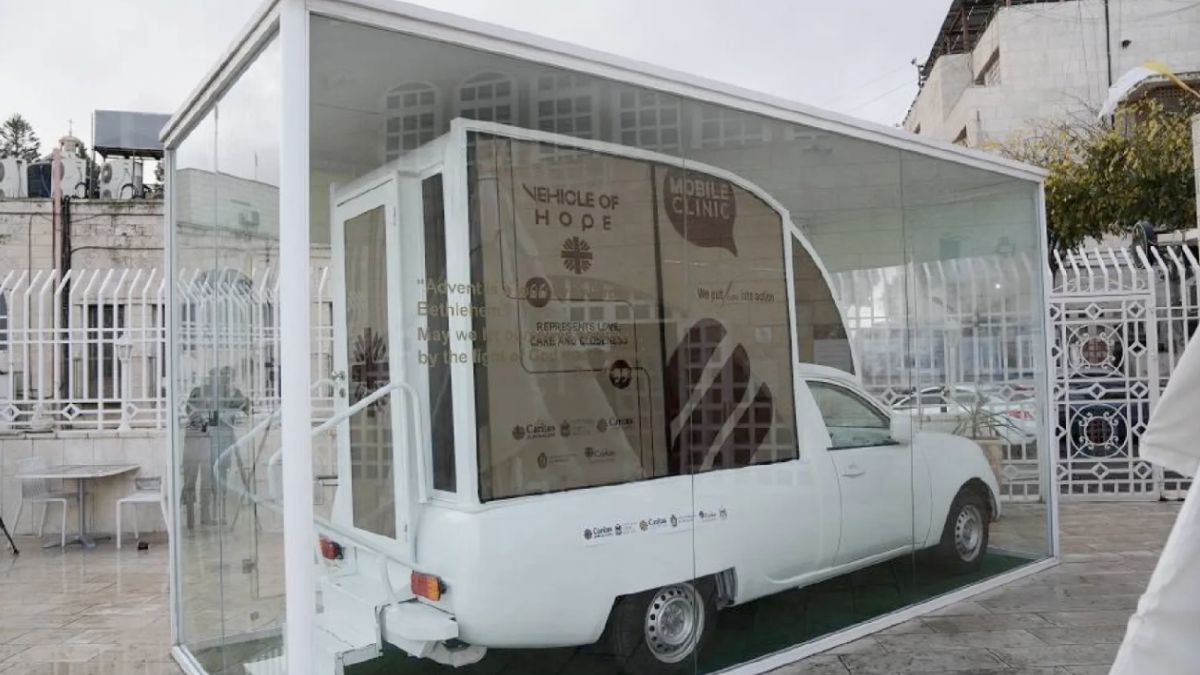
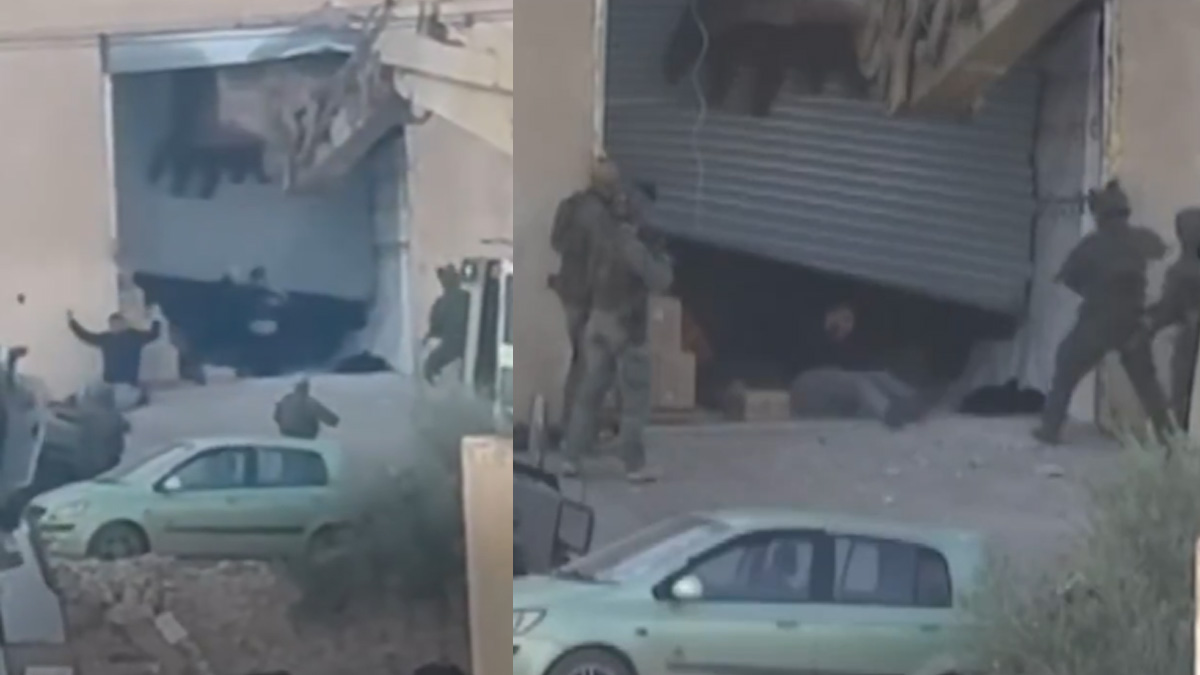


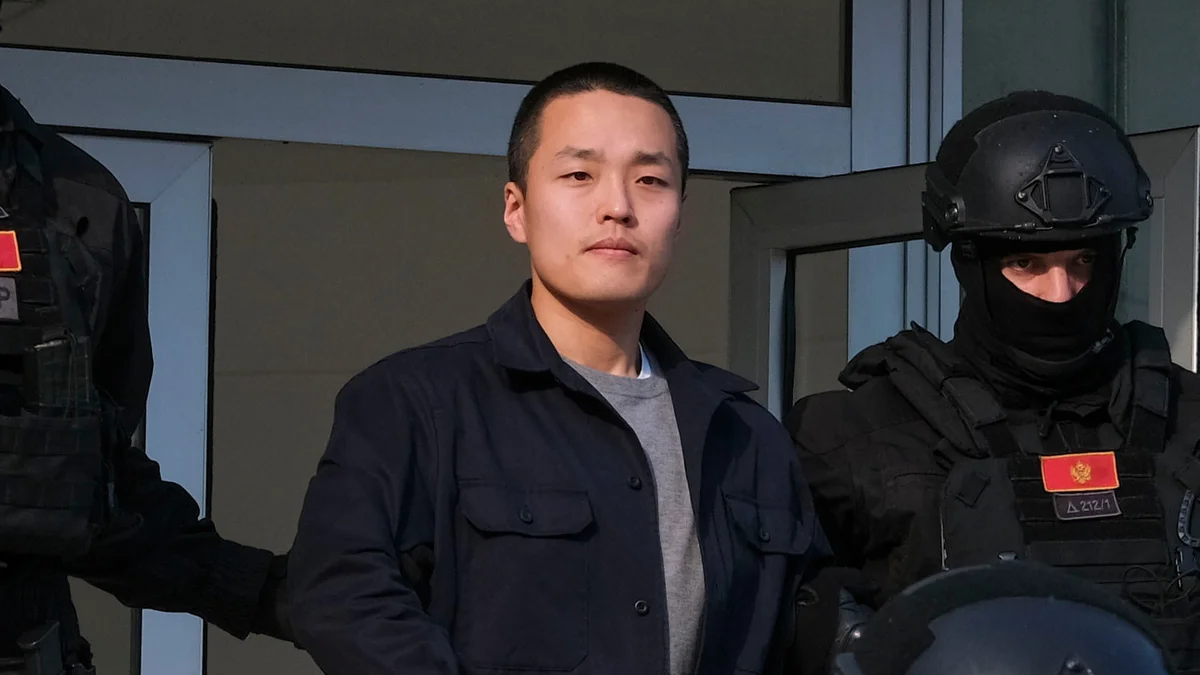

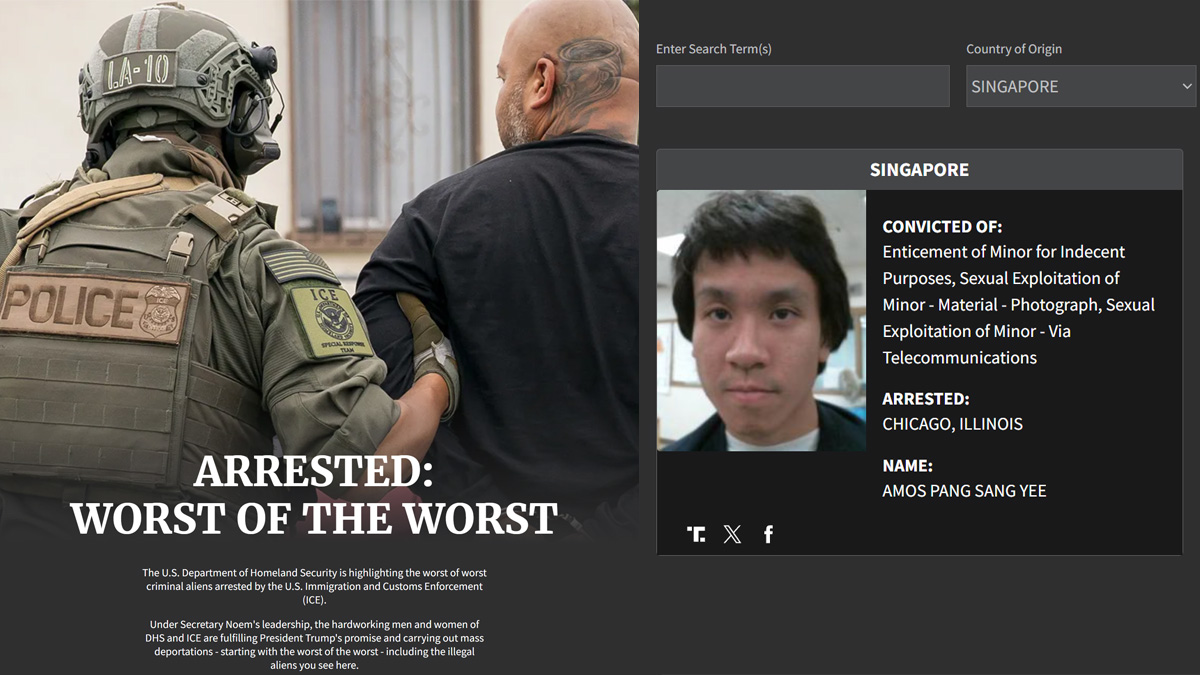
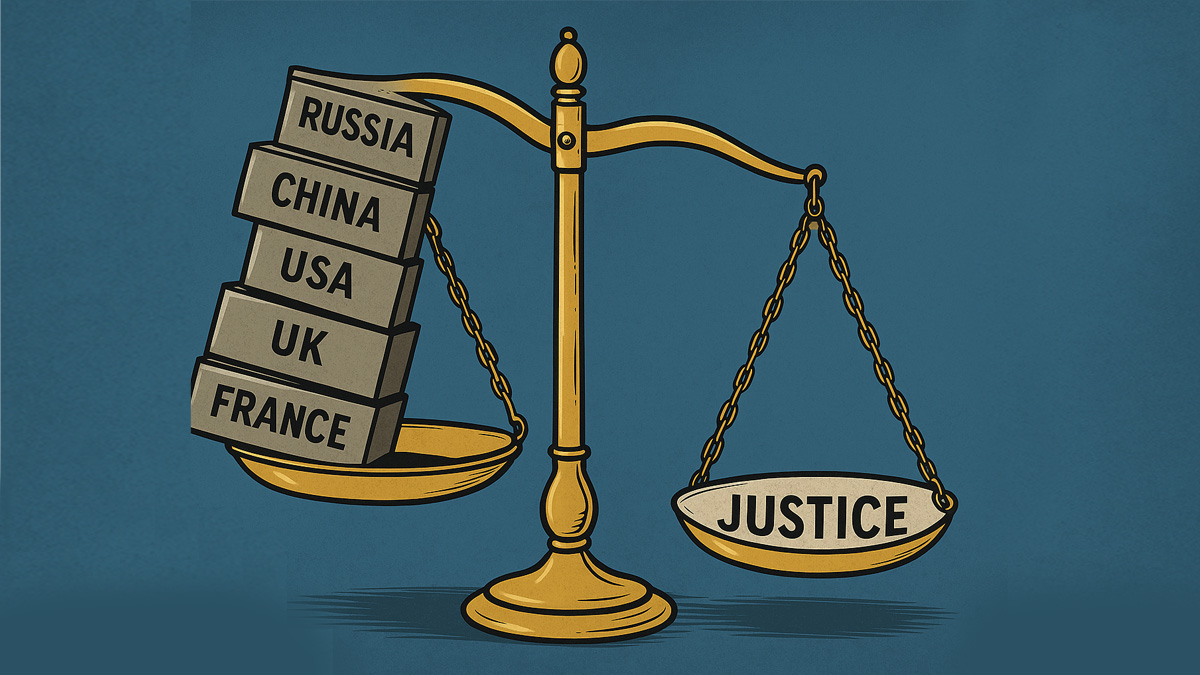
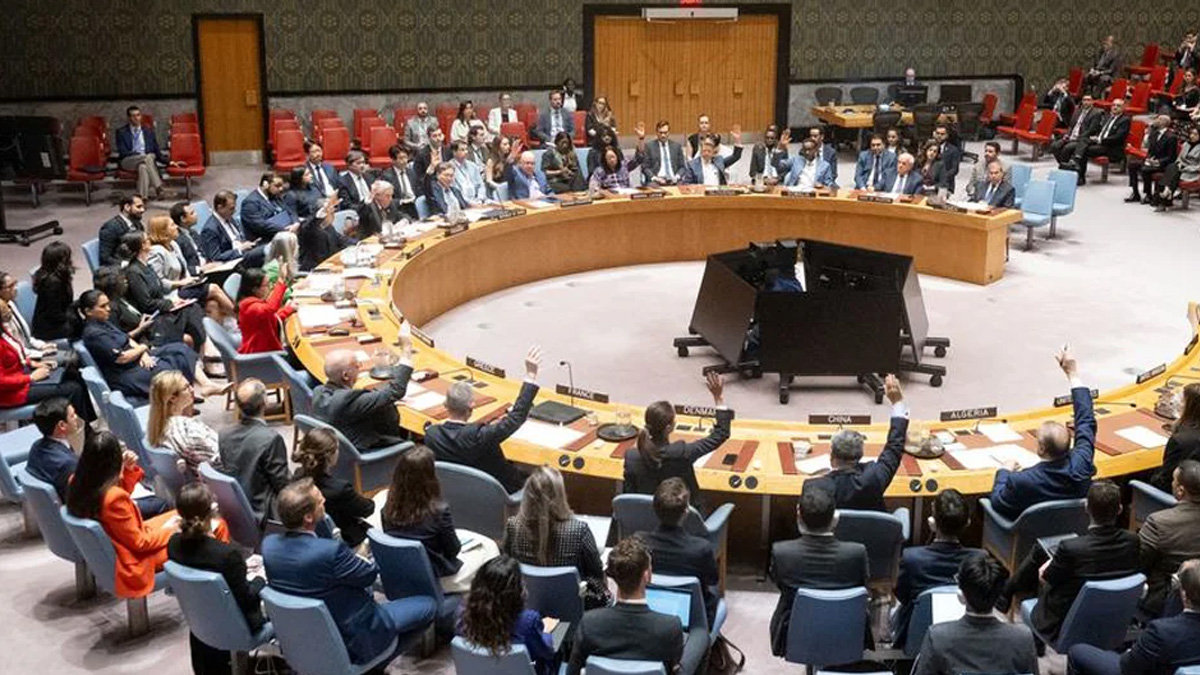
0 Comments